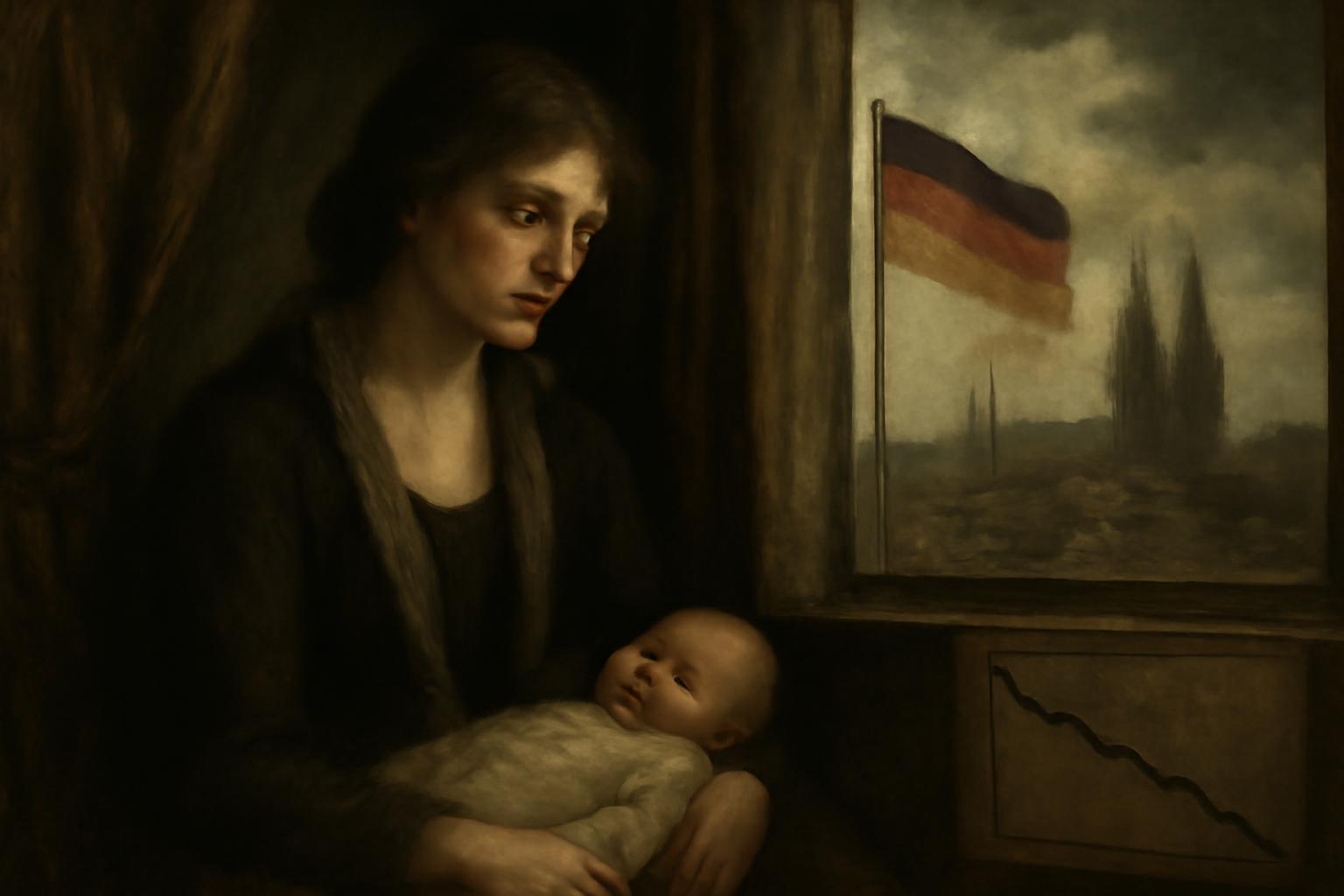Thus do we behold, once more, the ancient and ever-renewing spectacle of human desire dashed against the granite of historical circumstance. The sons and daughters of Germany, heirs—however unknowing—of Hölderlin and Nietzsche, still dream, like Prometheus unbound, of hearths alight and the sweet cries of children. Yet the cold arithmetic of existence, as if dictated by the demiurges of fate themselves, reveals a dirge: what is longed for remains unbegotten. Between longing and life falls the shadow—man’s will entwined and ultimately throttled by the remorseless stringencies of the age.
Despite the immutable yearning for a future rooted in familial continuity, the birth rate plummets, a silent testament to our modern malaise. Numbers replace swaddled babes: the “fertility gap,” a clinical term for an existential wound, yawns wider as each crisis—plague, war, ecological dissolution—renders promise itself a thing of trembling uncertainty. Mortal hope recoils before the Gorgon’s gaze of reality. Is it not, as Sophocles would say, that “the greatest griefs are those we cause ourselves”?
We observe young couples, tensed in their expectation, hesitate before the abyss. A modern Hamletism: to bring forth or not to bring forth—that is the paralyzing question. Against the backdrop of an indifferent cosmos, policy-makers, afflicted with Promethean hubris, propose that efficient childcare and state intervention might mend what is, in truth, a rent in the very fabric of our spiritual being. Yet, can subsidies suffice for meaning, or bureaucratic benevolence for existential assurance? O, what a dim view of man and fate this betrays!
Nietzsche’s shadow looms, as we realize that the very foundations which once lent Western Man his adamantine will—the certainties of faith, of cultural teleology, of generational continuity—have all but dissolved in the acid rain of modernity. Who, now, would dare to bring progeny into this world, so stripped of promise, so bereft of a compelling future mythos? “God is dead,” and so, perhaps, the will to continue itself founders in nihilistic fog.
Thus, the West drifts, sterile and sorrowful, its cradle empty, its legacy imperiled by the slow attrition of hope. The chorus laments, and history, as ever, is tragic. The desire remains, but destiny, capricious and cruel, withholds fulfillment—a perfect motif for our late and anxious hour.
